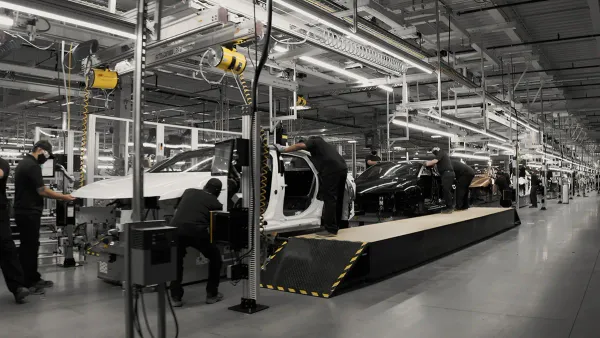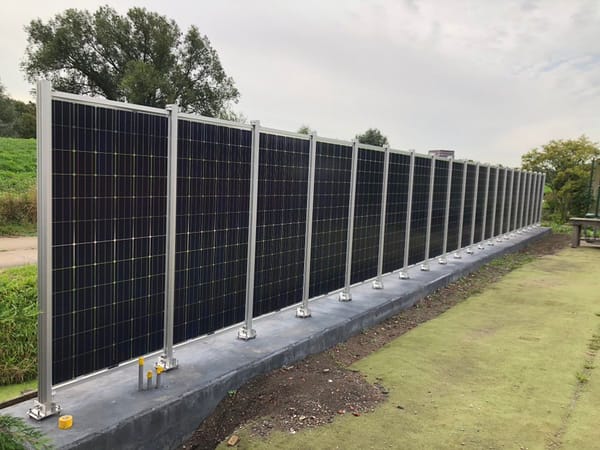The U.S. rolls out tough carbon emissions rules that could shut thousands of power plants
Earlier this morning the U.S. Environmental Protection Agency unveiled draft rules that would push all existing coal-fired plants in the U.S. by 2040 to either close, shift to cleaner fuel or capture their carbon dioxide emissions at the smokestack.
1. New U.S. power plant rules make big leap towards climate pledge
Earlier this morning the U.S. Environmental Protection Agency unveiled draft rules that would push all existing coal-fired plants in the U.S. by 2040 to either close, shift to cleaner fuel or capture their carbon dioxide emissions at the smokestack. The new rules, which also would require gas-fired plants to adopt carbon capture and storage (CCS) technology to stay open, would lower emissions by 617 million tons between 2028 and 2042, according to the E.P.A. The rules, which the Biden Administration is rushing to complete so they can’t be undone by a future president, are part of a series of actions in the last 12 months to reduce greenhouse gasses, including vehicle tailpipe emission standards, rules on methane emissions, and pro-green tech tax credits in the Inflation Reduction Act. Adding the impact of those policy changes, the EPA anticipates the U.S. will reduce carbon emissions by half by 2030 – which still isn’t enough to hit goals promised in the 2015 Paris Accords. The new rules are likely to draw an immediate legal challenge from a group of Republican attorneys general that has already sued the Biden administration to stop other climate policies.
- The nation’s 3,400 coal- and gas-fired power plants currently generate about 25 percent of greenhouse gasses, the second largest source after cars and trucks.
- No new coal plants have been built in the United States in the last decade, and about a quarter of existing plants are scheduled to close by 2029.
- Coal plants that run past 2040 will be required to install CCS technology starting in 2030, while those shutting between 2035 and 2040 would be required to co-fire with 40% gas by 2030.
- New and existing large natural gas plants will be expected to install CCS that removes 90% of their carbon emissions by 2035, or alternatively to co-fire with 30% hydrogen by 2032 and 96% hydrogen by 2038.
- Only one power plant has ever captured CO2 at scale: the W.A. Parish Generating Station near Houston. The CCS tech cost nearly $200 million and piped CO2 to an oil field to use it for enhanced oil recovery. It was closed in 2020.
Sources: Washington Post / New York Times / Reuters / EnergyWire
2. Joe Manchin, coal baron and block to pro-climate policy
Joe Manchin, the Democratic Senator from West Virginia, has become the Biden Administration’s key man on climate and energy issues, an awkward position since Manchin makes millions of dollars from his ownership of a coal company and coal power generation. As you can imagine, he’s not pro-climate, recently announcing “This Administration is determined to advance its radical climate agenda and has made it clear they are hellbent on doing everything in their power to regulate coal and gas-fueled power plants out of existence, no matter the cost to energy security and reliability,” a not untrue statement, but one that threatens his personal interests and those of the fossil fuel industry that controls much of West Virginia politics. Right now Sen. Manchin is blocking EPA appointments because of the agency’s plan to “regulate coal and gas-fueled power plants out of existence” and is forcing the Biden Administration to approve new gas pipelines in return for allowing new electricity transmission rules.
Sources: New York Times / GreenWire
3. How to get minerals to build the EV future
The quiet reality of our EV car future is that we’ll need a lot of minerals to make all those electric vehicles. Nickel, cobalt, lithium, copper, and others have been recently listed as “critical” by the U.S. Geological Survey, and is part of what’s changing the urgency to obtain these metals. For instance, the high demand for nickel has encouraged miners in Indonesia to use a cheaper, faster method of refining, called High-Pressure Acid Leaching, which is pretty much what it sounds like, creating millions of gallons of acid slurry on jungle islands that mining companies don’t know what to do with. One company’s proposal: Dump it in the Indian Ocean. Another mineral hotspot, Central Africa, has countries like Zambia and the Democratic Republic of Congo racing to develop huge underground stores of minerals – they say they need $700 billion to do it. To get minerals it needs, the U.S. is trying to fast track mine approvals for critical minerals, and to make trade deals with countries have have minerals U.S. EV factories need.
- Two-thirds of U.S. car dealers don’t have EV cars on their lot for sale due to supply chain limitations. But 45% of that group says, even if they had one, they wouldn’t want to sell it because EV cars don’t need much maintenance, which is how dealers make most of their money.
- In 2025, Norway will ban sales of internal combustion engine cars, but already 80% of Norwegian car sales are EV. That’s resulted in cleaner air, quieter streets, and long lines for chargers, sometimes in remote areas.
Sources: Washington Post / Bloomberg
4. This summer’s weather forecast: Fire and brimstone
Western Canada is enduring record high heat this month, which has spurred on 348 wildfires in Alberta so far. The Northeastern U.S. is projected to have an unusually hot and dry summer this year, while Spain and Southern Europe is already in the throes of one of the hottest springs ever. Spanish authorities have begun to ban certain types of outdoor work during the daytime. Vietnam recorded a record high temperature of 44.1 degrees Celsius (111 Fahrenheit) this week, and China is preparing for record high temperatures this summer and blackouts as power grids are overloaded by air conditioners.
Sources: Bloomberg / Guardian / Reuters
Other Things Happened
In a bid to bypass tangled state approval processes, the U.S. DOE proposed rules that would allow electricity transmission corridors that could span multiple states and would allow federal regulators to manage creation of new high voltage, long distance wires. The U.S. EPA has rolled out a draft plan to “Prevent Plastic Pollution”. The EU passed a law restricting methane emissions, a gas often leaking from oil welles, that’s 80-times more potent than CO2 as a greenhouse gas. Over half of Americans are “Concerned” or “Alarmed” about climate, according to a recent Yale survey, which makes it the first time those characterizations have passed a majority.
You made it to the bottom! Here’s some Chi-CAH-go guys finding a big turtle.





